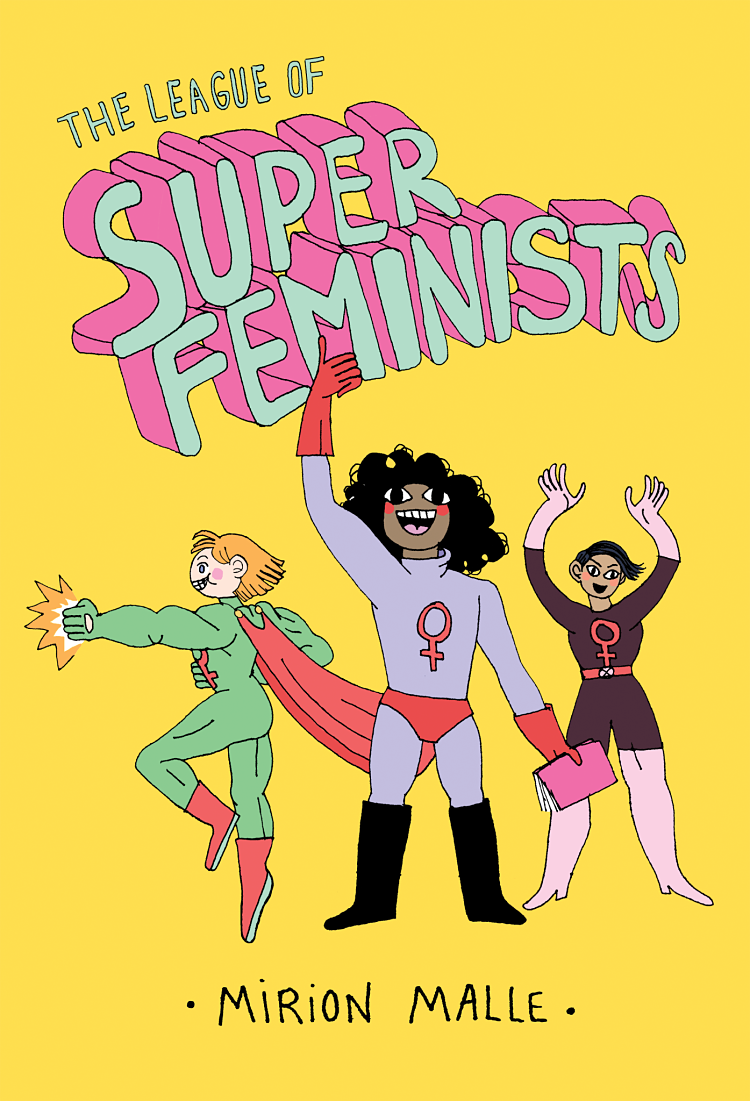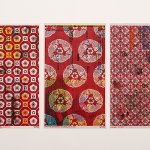Why does feminism matter? Are feminists man-haters?
While feminism isn’t a new thing—the official “first wave” was now more than a century ago—questions like this are still being asked, and need to be addressed. Today, feminism is a multifarious thing that often takes many different meanings: one feminist might be strongly opposed to prostitution since they see it as a form of violence aimed at women; another might term it “sex work” and take the view that it’s a valid choice when it comes to how to make money. There are many such discrepancies between various feminist factions (Liberal, Radical, Separatist, and so on); but the fundamental, broader questions that those who are only just learning what the word “feminism” means remain largely the same.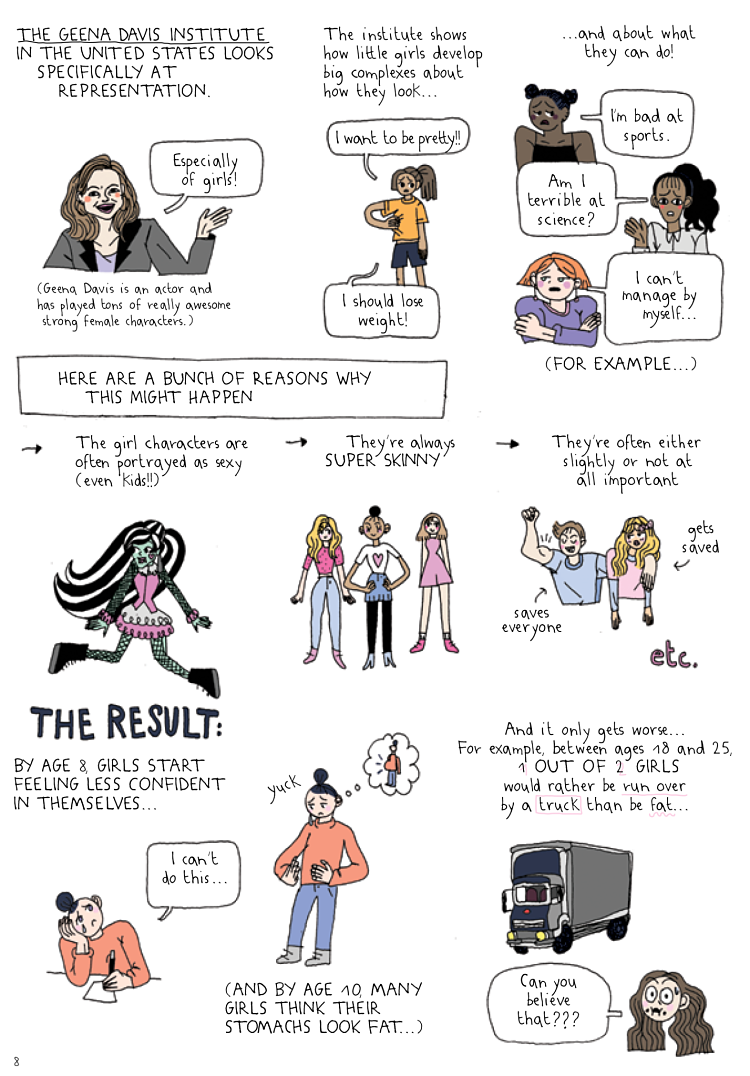
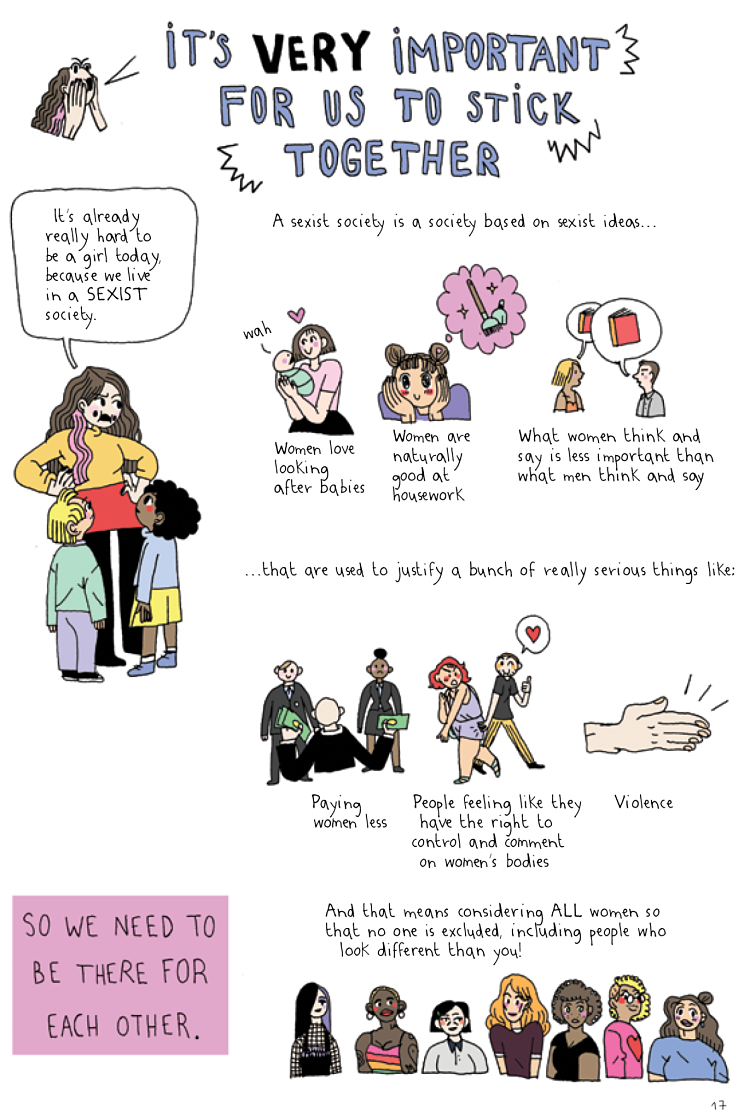 It’s those questions that French cartoonist Mirion Malle aims to help answer for kids and younger teenagers in her new book, The League of Super Feminists. The comic-based book takes a refreshingly non-academic tone, instead focusing on all that’s energetic and colourful.
It’s those questions that French cartoonist Mirion Malle aims to help answer for kids and younger teenagers in her new book, The League of Super Feminists. The comic-based book takes a refreshingly non-academic tone, instead focusing on all that’s energetic and colourful.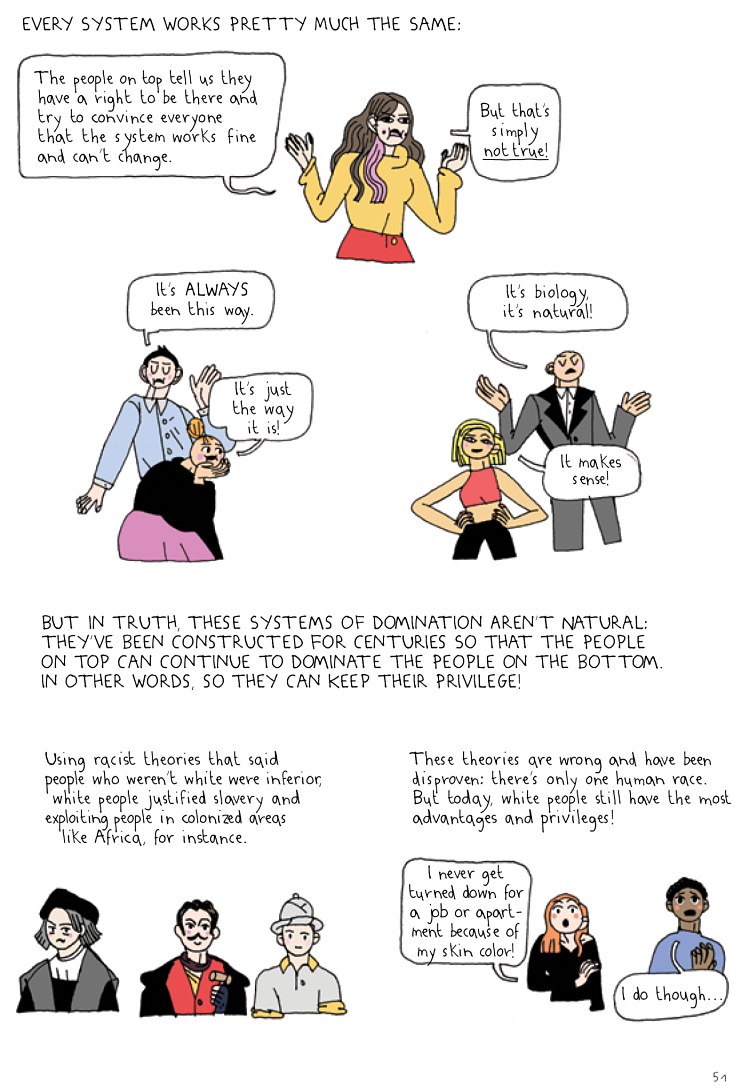 Looking to act as a primer on feminism’s central tenets and media literacy (the practices that allow people to access, critically evaluate and create or manipulate media); The League of Super Feminists covers topics such as consent, intersectionality, privilege, body image, inclusivity and more.
Looking to act as a primer on feminism’s central tenets and media literacy (the practices that allow people to access, critically evaluate and create or manipulate media); The League of Super Feminists covers topics such as consent, intersectionality, privilege, body image, inclusivity and more.
As well as answering questions, the engaging and dynamic dialogue (translated from the original French by Aleshia Jensen) not only answers certain questions, but encourages young people to ask more of their own about the ideas we’re all fed around identity and gender.
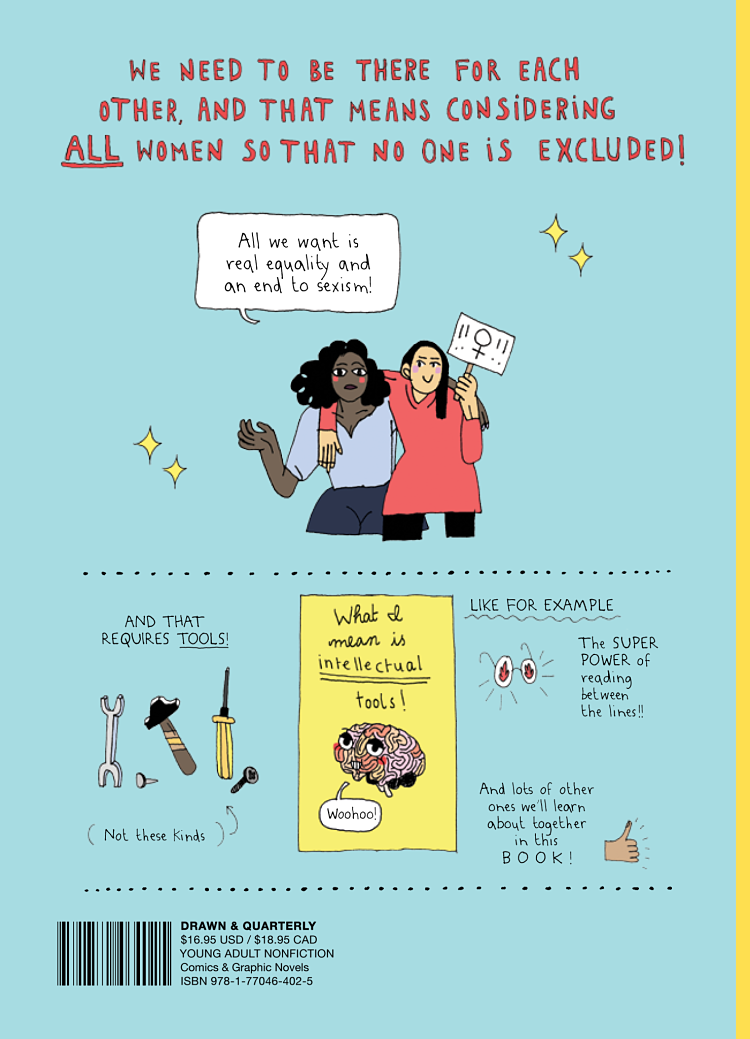 As publisher Drawn and Quarterly puts it, the comics “transport lofty concepts from the ivory tower to the eternally safer space of open discussion”. Vitally, it isn’t patronising, but also doesn’t shy away from using humour as a tool for learning: we see, for instance, why fairytale knights and princesses might be a little dicey when it comes to consent; the problems with cat-calling; nd the fact that “no matter how women dress there seems to always be someone ready to call it out.”
As publisher Drawn and Quarterly puts it, the comics “transport lofty concepts from the ivory tower to the eternally safer space of open discussion”. Vitally, it isn’t patronising, but also doesn’t shy away from using humour as a tool for learning: we see, for instance, why fairytale knights and princesses might be a little dicey when it comes to consent; the problems with cat-calling; nd the fact that “no matter how women dress there seems to always be someone ready to call it out.”
You might like...
- Autobahn - November 26, 2021
- Alphabetical - November 12, 2021
- SOFA Universe - November 8, 2021

